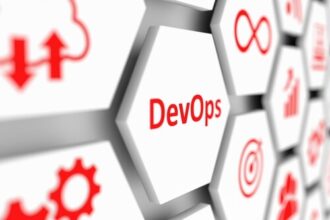Docker is one of the two most popular DevOps platforms for data scientists. There are over nine million Docker accounts and the number of developers using Docker is growing 30% a year.
There are a lot of compelling reasons that Docker is becoming very valuable for data scientists and developers. One of the reasons is that the configuration and user interface is so intuitive and convenient.
If you are a Data Scientist or Big Data Engineer, you probably find the Data Science environment configuration painful. If this is your case, you should consider using Docker for your day-to-day Data tasks. In this post, we will see how Docker can create a meaningful impact in your Data Science project. For those not aware of Docker, let’s understand Docker first.
What is Docker and How Is It Different
You can skip this section if you are already aware of Docker. Otherwise, it is a good idea to get an understanding of Docker, especially if you plan on working on complex data science projects.
Using Docker is almost similar to using Virtual Machine. A virtual machine allows a single machine to have more than one operating systems by running a host operating system and installing the guest operating systems on top of it. Doing so helps in interoperability and utilization of resources as well as isolation of environments.
Installing multiple operating systems requires resources, and hence the resulting system becomes bulky and slow. Docker aims to solve this problem by removing the need to install whole operating systems. Rather, you install Docker software on the host operating system. Docker then takes care of running your applications in isolated environments, containing all the necessary files and binaries needed by that application, just like virtual machines, on top of the host operating system.
Let us move forward with how Docker can help data scientists.
Containerizing Your Data Science Application
There are a lot of compelling reasons to focus on using Docker for your data science projects. Reproducibility and portability are two of the biggest benefits.
Now that you know how Docker works, let’s look at simple steps to get Docker up and running your Data Science project.
Install Docker
Do not worry, if one of your teammates uses macOS while other is using Linux. Docker is available for all the OS. All you need to do is to install Docker on your team members’ machines and you all are even then.
Set Up Your Environment
First, you need to identify the environment you want to work. Let’s suppose you want to work with Python. You can go to the Docker Hub and search Python environment. If you PyTorch, you can find its environment as well. No matter which environment, the steps are same. Locate the environment, download the environment by running the Docker run command, and you are good to go. Further, each Docker image is tagged, so that your team members remain consistent of the version being used.
Create Docker Image File
Now that you have your work ready, create your Docker Image file. This file will contain all the dependencies for the fully functioning of your application. If you need to set any environment variables or commands, you can specify them as well. Data persistence is also possible making sure that the work you have done is not lost. This Docker image file is very lightweight as it does not contain any actual library or environment. Rather, it only specifies what is needed. You can upload this file on your repository and share with your team.
Availability of Container Images
As a Data Scientist, you can leverage the power of Docker Hub to get hands on a bunch of different interesting and helpful Docker Images available for you to use. These images save your valuable time in installing and configuring the environment. All you need to do is to run the command Docker run along with the image name, and Docker will take care of running the application.
Easy to Fire Up and Sharing
No one Data Scientist ever works on a single problem. A Data Science task usually is a shared responsibility of the developers. Frequently, in a team, we hear: “It worked on my machine but why not here!” Docker solves this problem. First having images will let the developer set up the environment hassle-free. Next, if you want to share your work, just create a Docker Image file, and then upload it on either Docker Hub or your own repository. Just like GitHub, your team members can check out the image file and fire up the application. No more lengthy configurations, setup issues, hardware restrictions. Just get the Docker image file, install docker on your machine run the command to start!
Goodbye to Environment Worries
Once your code is ready, and your model is working as expected, create your Docker image file. Include all the dependencies in your image file along with any further needed configurations. Once your Docker image file is ready, you can run your code on any system that is running Docker. From the data science perspective, instead of worrying about the infrastructure to test your models, just install the Docker and run your Docker image file into a container bringing you agility in the entire process.
No More Need of Heavy Resources
This is probably the most exciting benefit of using Docker. Data Science applications are resource extensive. You might have 1 million records, each record having tens or hundreds of columns. You might want to fine-tune your model or test if SVMs are working better or Regression. Everything requires resources here and if you must create a virtual machine, it can be a nightmare. Fortunately, Docker minimizes the need for heavy hardware by removing the need for VM.
Wrapping It Up
Data Science is the future. However, the projects and deadlines can make it frustrating. While you cannot alter or do away with the complexity of your project, you can make the project cycle seamless and nuisance-free by adopting Docker, so that not just the team remains synced, hardware and resources minimized, and you can focus on delivering the value.










